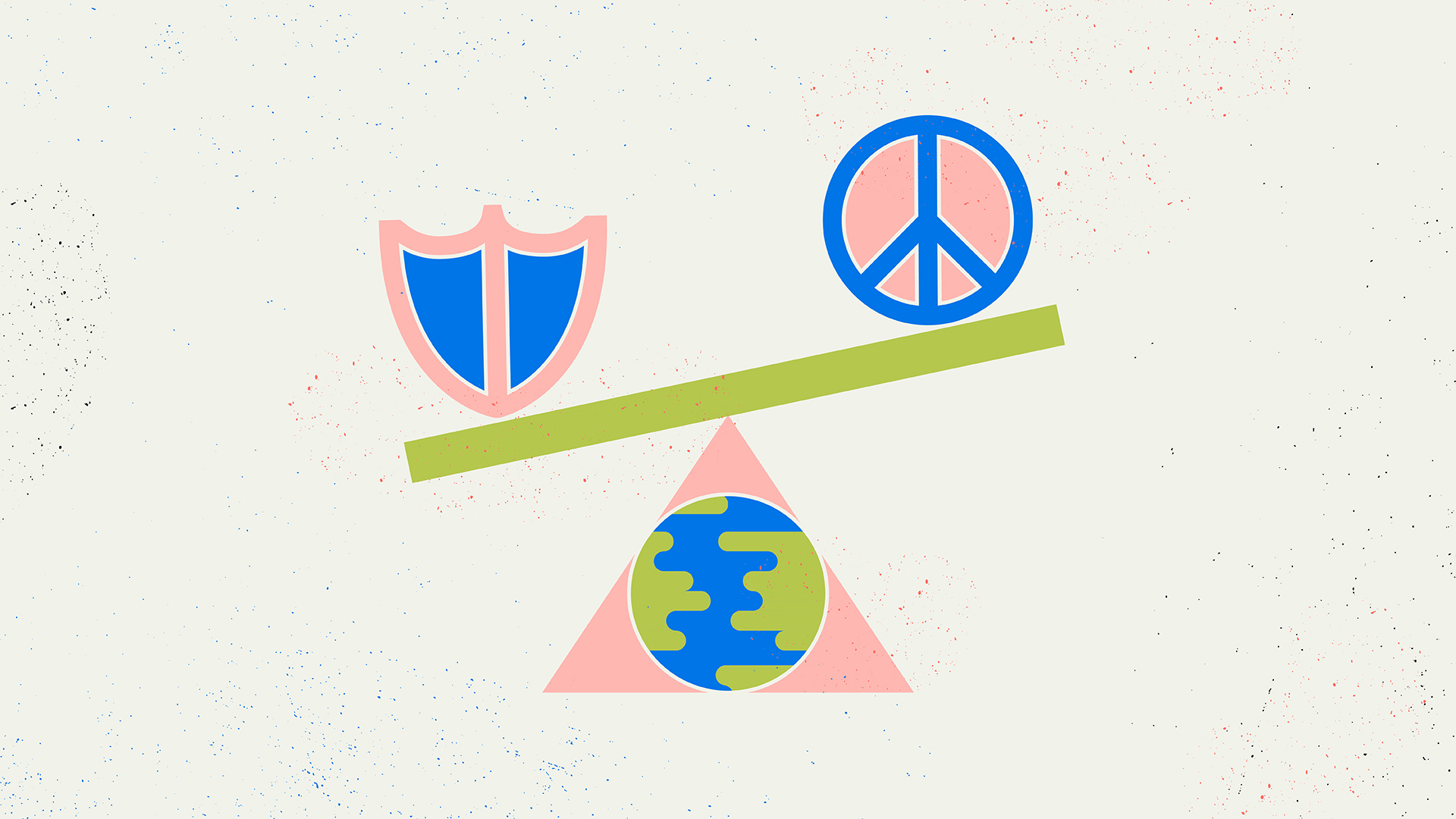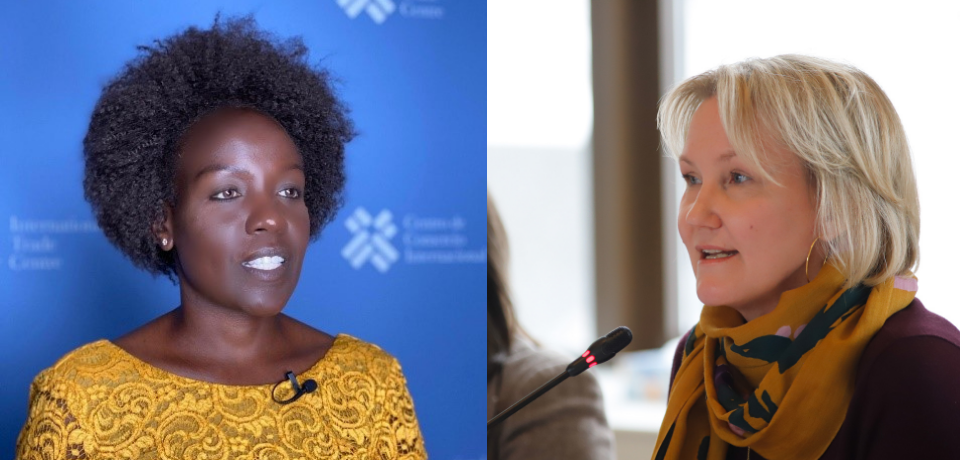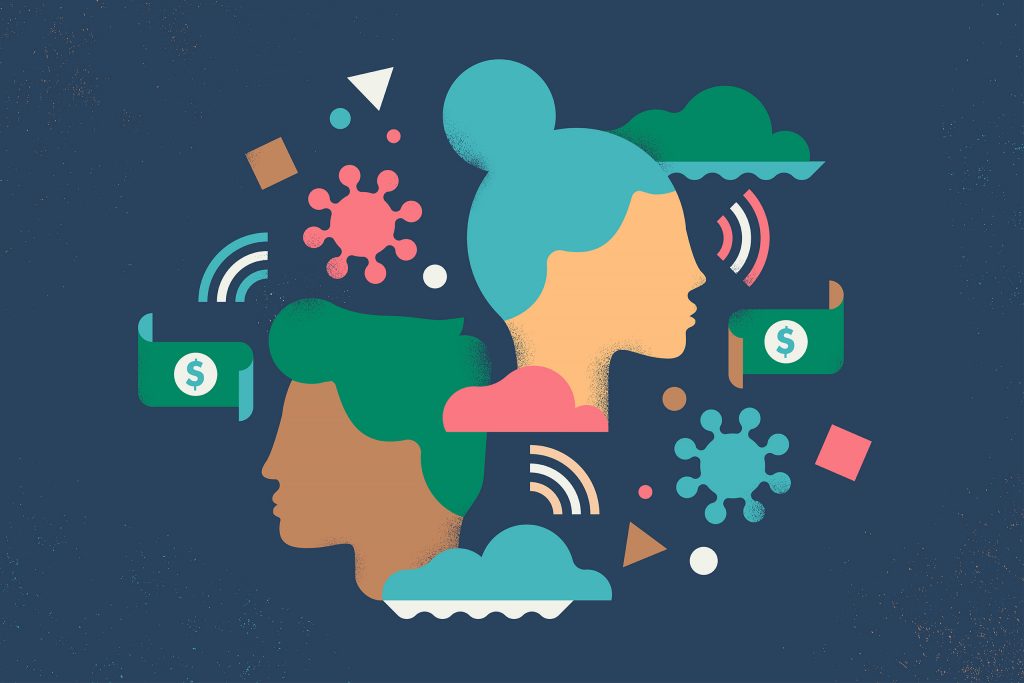Author: Jean-Marie Guéhenno
BiographyJean-Marie Guéhenno
Jean-Marie Guéhenno is a distinguished fellow in the Foreign Policy program at Brookings and a member of the U.N. secretary-general’s High-Level Advisory Board on Mediation. From 2014 to 2017, Guéhenno was president and CEO of the International Crisis Group. He is an expert in peacekeeping, global governance, and transnational security threats. He is currently writing a book about the individual and the collective.
Photo: Crisisgroup/Julie David de Lossy

Illustration by Brandon Serbec
Jean-Marie Guéhenno is a distinguished fellow in the Foreign Policy program at Brookings and a member of the U.N. secretary-general’s High-Level Advisory Board on Mediation. From 2014 to 2017, Guéhenno was president and CEO of the International Crisis Group. He is an expert in peacekeeping, global governance, and transnational security threats. He is currently writing a book about the individual and the collective.
He was interviewed by Secretary General of the Global Centre for Pluralism, Meredith Preston McGhie, on June 4, 2020.
In this interview, Jean-Marie Guéhenno reflects on the challenges of peacekeeping during the pandemic and the urgent need to address inequalities and foster global solidarity.
The following is a transcript of the interview, which has been edited for brevity and clarity.
Meredith: What do you see as the challenges to peacemaking right now, three months into the pandemic response?
Jean-Marie: COVID-19 is weakening everybody, but in different ways and, of course, some more than others. It makes all countries more inward-looking. In some ways, this could be good news in the sense that if countries have to focus first on their own situations, they may have less energy to actively interfere in other situations. That’s the optimistic interpretation.
The pessimistic interpretation is that we are now engaged in the power politics of weakness, so to speak. The cheapest road to national security is for some to think that if you weaken your adversaries, that’s much cheaper than strengthening yourself. This pandemic will see the weaker countries becoming even weaker, and there is a risk that other countries will see this as an opportunity. Weaker countries will be even more exposed, and so the need to help them is of critical importance.
An inward focus is also affecting actors that could play a positive role, such as the European Union. With COVID-19, there’s an intense debate in Europe about how to salvage Europe first. This makes sense, and could lead to some significant changes in the long term, such as a more integrated Europe. However, in the short term, that inward focus could mean less attention to actively engage with parties that you could help reach peace.
There is a serious risk that we are going to see significant cuts in budgets for peacebuilding. Consider those countries that commit a certain percentage of their GDP for peacebuilding, like the Nordics. If their GDP goes down, so too will the amount for international aid and development. Then, at the macro level, what will be done by organizations like the World Bank or the IMF?
Consider the whole campaign of vaccination. Where is polio still active? Northern Nigeria, Somalia, some parts of Pakistan, some parts of Afghanistan—the conflict areas. A pandemic that attacks the weakest links will come back. And so there is a very strong rationale for global solidarity. It should be a priority, but it’s not. There is a kind of tension between the immediate political priorities of focusing on one’s self and the longer term needs. A world where there are collapsing states and ungoverned spaces is a dangerous world for everybody.
Meredith: When you talk about countries being more inward-looking, do you feel like that is also increasing negative authoritarian tendencies? Or can that inward focus force some constructive discussions around the inequalities and marginalization that are being brought to the fore by the pandemic?
Jean-Marie: Society is about accepting a shared measure of risk together. This pandemic can take societies in two opposite directions. In some ways, you can see the appeal of the authoritarian leader because people hate to have to take responsibility, especially if there are life and death consequences. So, there is some appeal to a cocooning government that tells you everything you have to do. And that’s very dangerous. Authoritarian leaders can take advantage of that, as we have seen in Hungary and Egypt.
On the other hand, this pandemic exposes enormous inequalities and also shows that we are in it together. For example, if you are rich, you can protect yourself, but at some point if you want your housekeeper to come clean up your bathroom, you need that housekeeper to be healthy. So, at one level we are in it together, and that should create a sense of solidarity. And yet…Let me give you an example. Every day at 7:00 PM, people applaud health personnel. This is great. It creates a sense of empathy with people who are putting their lives at some risk to help us. At the same time, I’m a little uneasy seeing all these people out happily jogging and biking, and some of them not taking much precaution to prevent infecting others. I think it’s a bit like people who applaud the troops on Bastille Day in France.
Meredith: Solidarity hasn’t emerged as strongly as one would hope. Do you think we are still waiting for that real solidarity, beyond clapping from our balconies?
Jean-Marie: I hope this pandemic will start the conversation on solidarity, whether at the national level or the international level. If you look at the call for the global ceasefire, there has been a very tactical response. I think the actors looked at their local situations and asked: Would a ceasefire be good for me? Or is it time for me to gain ground rather than think in a longer term, more strategic way? If the weaker countries collapse, that hurts the richer countries, too.
Meredith: One of the things we’ve noticed in many sectors is an extraordinary creativity coming out of the crisis, a way of reimagining things. Do you feel like there is an opportunity for us to have a different kind of conversation around peacemaking and mediation in terms of how peace processes actually seek to address horizontal inequalities that have led to conflict?
Jean-Marie: In this pandemic, cities are the gateways of infection since the virus needs physical proximity to spread. I think that the city level as a peacemaking focus may become more important because we see that solidarity is very much in evidence in cities. We are all dependent on how other people are going to behave in the city where we live.
I’ve heard there have been experiences in Africa of community-based arrangements to stop the infection that have been quite interesting. I think there are some commonalities in the way we can stop infection and the way we can stop violence. I would hope that those initiatives at the community level might gain more strength with the experience of COVID.
I also hope that addressing inequalities will gain traction in the peacemaking process. Today, when we look at societies, we focus more on religious or ethnic groups than on class conflict. Having more of a focus on that socio-economic dimension of conflict would be a very good thing. Inequality is one thing when it’s people who have a nicer house than you have, but when inequality means that you are at much greater risk of dying than the rich person, that sharpens the focus.
Meredith: We’ve seen such amazing things happening with social movements. I wonder how you leverage that solidarity across borders. How can these international social movements bring about real change in a system of international organizations that seem to be frozen at the top?
Jean-Marie: Maybe the legacy of this lockdown period is that the conversations that local actors can have through Zoom and other various online techniques can be broadened. The connectivity of the world has become more visual. Instead of a conference that only a few people can attend, there can be a broader public meeting that gives a sense of what’s going on in a country, and the people in the country get a sense of what’s going on elsewhere. That is very empowering. We needed a way to network those activists around the world, and now we have the technical instruments to do it. Of course, you’re not going to have 1,000 people on a panel, but you can have 1,000 people watching the panel—and that’s amazing.
Meredith: How are you thinking about the issue of the individual and the collective going forward in the pandemic? I know this is a topic you are currently exploring as you write your book.
Jean-Marie: The idea of the individual goes back a long way, some say to Christianity. In Antiquity you did more in clans and families, and Christianity created the direct link between the divine and the individual. Then it got secularized during the Renaissance and the Age of Enlightenment. The concept of the individual has been an enormous source of empowerment for people, but I think it has become desiccated. It has been gradually reduced to a one-dimensional economic agent who exists solely to maximize the search for happiness, however you define it. I think the individuals in that pursuit are discovering that the identity of an individual cannot be separated from a sense of belonging to a broader community. If you lose that anchor, you lose your sense of purpose. That’s where we are now.
Of course, there are easy answers to that: the nationalists, the religious fanatics. There are many ways to restore a sense of belonging to a collective identity, but these can be dangerous and can make the individual even more unidimensional. A central idea of my book is that we have to be multi-dimensional and that in life there are different orders of success. There is monetary success. There is the pursuit of knowledge. There is charity. There are a variety of values. There is not one ultimate type of success. A stable, open society recognizes that there are different orders. That’s what creates balance in a society. That’s what we must fight for now, this plurality of values.




